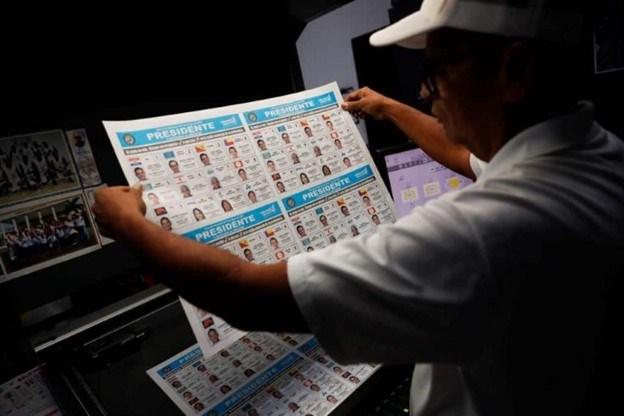
Daniel Zovatto: “It is blatant cynicism to see the dictator of Nicaragua saying that he is breaking diplomatic relations because the Vienna Convention was violated”
Por Carlos F. Chamorro (Confidencial)
HAVANA TIMES – In the next four months, there will be four presidential elections in Latin America. The first is next May 5 in Panama, followed by the Dominican Republic on May 19, and on June 2 in Mexico. “Finally, on July 28 we will see what kind of election there will be in Venezuela,” says political scientist Daniel Zovatto, Global Fellow at the Wilson Center, who keeps his finger on the electoral pulse of the region.
In an interview with Esta Semana and CONFIDENCIAL, Zovatto analyzed the “uncertainty” surrounding the election in Panama, in which the Supreme Court of Justice must rule in the coming days on an appeal for unconstitutionality against the candidacy of Jose Raul Mulino, the favorite in the polls. He’s the substitute for former President Ricardo Martinelli, who sought asylum in the Nicaraguan embassy and was convicted of corruption by the courts, and therefore inhibited from participating in the election.
Zovatto analyzed the diplomatic crisis between Ecuador and Mexico, in which Ecuador did something “unjustifiable and condemnable” by violating the Vienna Convention with the assault on the Mexican embassy, but insisted that several Latin American countries, among them Nicaragua and Mexico “have denaturalized political asylum by granting it to criminals prosecuted or convicted for common crimes.”
“It is a blatant cynicism to see the dictator of Nicaragua in outrage, saying that he is breaking diplomatic relations (with Ecuador) because the Vienna Convention has been violated,” said Zovatto, and warned that there is a global crisis, in which Ecuador, Russia, Israel, and other countries “are undermining the norms of public international law, and the capacity of the United Nations.”
Election in Panama: “uncertain” and “unprecedented”
Polls project Raul Mulino as the favorite. He’s the candidate of former President Ricardo Martinelli, who was convicted of corruption and sought asylum at the Nicaraguan Embassy in Panama. In the polls, Mulino has 15 points of advantage over three other candidates who are tied in second place, is this an irreversible trend?
The election in Panama, if there is a word that defines it, is unprecedented. The other word is uncertain, because we have never had an election with these characteristics, not just in Panama but in Latin America. I would almost say worldwide, it is an election where the one who was leading the polls, the former President Martinelli, has been sentenced with a firm sentence to 128 months in prison, to avoid jail he took refuge in the Nicaraguan Embassy.
He continues proselytizing from the Nicaraguan Embassy and is still very active in the electoral campaign. The Electoral Tribunal correctly disqualified him, as Article 180 of the Panamanian Political Constitution establishes that he cannot be a candidate to any post of popular election, and Mulino is left in his place. The problem is that Mulino is not sure that he will be able to make it to the end of the electoral campaign either, because they have filed an appeal of unconstitutionality before the Supreme Court of Justice, the Court is precisely at this moment receiving opinions in favor and against that candidacy, that period closes on April 19 at 5 pm, and then the Court will see at what moment, whether before the May 5 election or after, it will pronounce itself, but it is not clear how it will pronounce itself. There is a great level of uncertainty, the candidate who is leading in the polls could run the risk of seeing his electoral campaign and his candidacy interrupted.
What is the substance of the complaint filed against Mulino, and what impact would it have if the Supreme Court disqualified him? Would this affect the democratic credibility of this election? Because it is also unprecedented for a candidate to be disqualified two weeks before the election.
It could even happen a few days before, with a deadline closer to the election.
Uncertainty is good news in elections because it is always good that there is certainty in the rules and uncertainty in the results. The problem is that here there is uncertainty, not only concerning the results but also concerning who the candidates who will finally compete may be, until the last moment.
The appeal of unconstitutionality filed before the Supreme Court of Justice of Panama says


